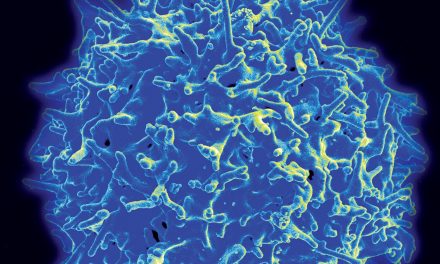
Statistics estimate that during the year 2016 there are 246,660 new cases of invasive breast cancer that will be diagnosed. Of these 246,660 women diagnosed about 40,450 of them will pass away due to their breast cancer. Although the number of women surviving is far greater than the number on the other side of the spectrum 40,000+ is still far too many women to have their lives end due to this disease.
Cancer is one of those things that we are constantly fighting for new discoveries. Scientists, doctors, cancer patients, and loved ones of cancer patients are constantly dreaming of a world in which this devastating “C” word can be eradicated from their vocabulary once and for all. Luckily, increased experimentation of the idea of personalized medicine may help all of the people who’ve been touched one way or another by breast cancer.
Personalized medicine, also called precision or individualized medicine, is an emerging medical procedure that is focused on diagnostic tests that help physicians to determine the correct treatment for each patient’s individual genetic makeup. While some 246,000 women will be diagnosed with invasive breast cancer this year, no two of these women will have the same experience with the disease, nor will their bodies have the same chemical reaction. U.S. News describes it as, “making the treatment as individualized as the disease” and that is exactly what personalized medicine aims to do. The diagnostic tests involved in the practice of personalized medicine show the patient’s biomarkers, which then helps the doctors to be better able to predict how the patient’s body will respond to a variety of different treatment options. Personalized medicine works not only to help doctors create better plans for targeted treatments but also with pharmacogenomics, which is the study of genes to see how an individual responds to specific medicines. Through personalized medical procedures doctors should ideally be able to create a unique plan for each patient that will be able to rid them of their cancer faster while also minimizing the amount or level of negative side effects.
Specifically the revolution that is personalized medicine can be linked instrumentally in the success in treatments fighting breast cancer. The use of testing breast cancer patients for their specific biomarkers could limit the amount of broad treatment plans such as surgery and chemotherapy, thereby limiting risks and side effects and increasing success levels by targeting the particulars of each cancer at the molecular level. This shift in healthcare could help patients diagnosed with breast cancer by providing them with detailed diagnostic tests and better guidance with their treatment plan. As we continue to make genomic discoveries we continue to better our chances in saving the lives of those affected by breast cancer and limit the amount that will be affected in the future.
The process of moving towards personalized medicine within every breast cancer case is still a few years off but through helping with funding or simply raising awareness of this type of treatment we get closer and closer to a place in which there will be a year whose estimated women diagnosed with new cases of invasive breast cancer is zero.






